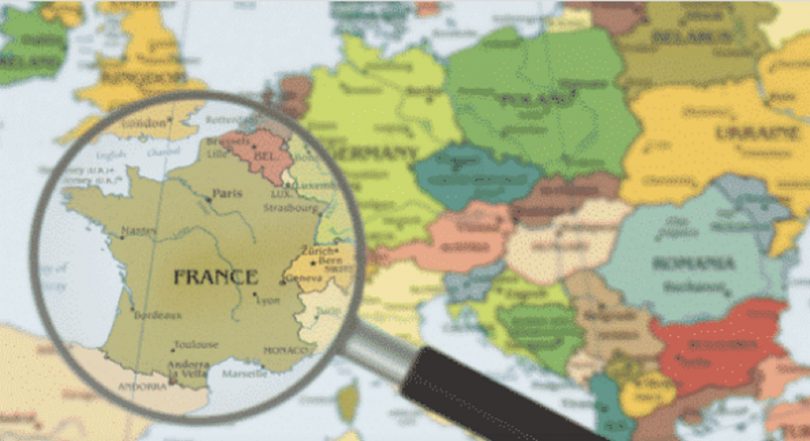Table of Contents
France’s charm and culture put the world at its feet. The country is adored for its Eiffel Tower in Paris and its nonchalant way of life. Luckily, people with French ancestry can trace their ancestors and become more than just tourists of the adorable heritage.
Sure, you can become a French citizen by proving your family connections to French relatives or ancestry. Besides, having an accurate breakdown of your family history can unearth other exciting aspects about you.
This guide explores French citizenship by descent program and all the possible outcomes.
Key Takeaways
- France has gradually implemented the Jus sanguinis principle, which grants citizenship to people connected to France by blood.
- You will need to prove your identity and the citizenship of at least one parent.
- If you have French heritage and are concerned about documenting it, we can help you narrow down the options and quickly trace your ancestors and their origins.
RELATED:
How to get Italian Citizenship by Descent & Your Italian Heritage
What Is Citizenship by Descent in France?

French Flag
Like in other countries, you can obtain French citizenship by birth, marriage, descent, investment, and more. Citizenship by descent is one adored option preferred by foreign citizens whose ancestors originated in France.
If you’re ready and willing to overturn the stones, we have everything you need to know to succeed in France’s case. The country has gradually implemented the Jus sanguinis principle, which grants citizenship to people connected to France by blood.
Unfortunately, France only allows you to go back one generation, meaning you can only acquire citizenship by descent if one of your parents was a French citizen. If you’re lucky to have a parent with French citizenship and want to pursue French dual citizenship, all you need is reliable and accurate documentation as proof.
You will need to prove your identity and the citizenship of the parent. Also, there has to be proof of a parent-child relationship when you were a minor.
Benefits of Acquiring French Citizenship
France is the European Union’s (EU) powerhouse and a top-five economy in the world. This means you’ll never miss opportunities if you’re willing to work in France. Besides, the French passport is among the most powerful travel documents, allowing you to visit various countries visa-free. Remember, as a French citizen, you can travel, reside, or work in any EU nation.
Caveats To French Citizenship

Eiffel Tower
The most difficulty in acquiring French citizenship stems from the process and requirements. For example, France requires you to register all generations before applying. In other words, the parent who passes the citizenship to you must have all the necessary documentation as a citizen before you apply.
It means that parents who qualify as citizens by birth or other means must go through the process, and the descendants must follow. In the same way, you must register and obtain citizenship before trying to do the same for your kids.
While the paperwork may be easy to establish, the cultural and language interview is another hurdle. This plays into the fact that France is a nationalistic country, with less than 40% of the population speaking English.
As if that was not enough, France can deny you the right to citizenship by descent. This mostly happens if you or your parent have been out of the country for over 50 years and have not participated in activities such as passport renewal, voter registration, census, etc.
These caveats make France one of the most complex countries for people to acquire citizenship through the ancestry program. But don’t fret yet. If you can prove your French ancestry and other recent connections, you still stand a chance to apply.
Below is a detailed overview of how to quickly document your French heritage and track your ancestors and relatives in the world’s powerhouse.
How To Research Your French Ancestry

Genealogy Research
It would be a hassle to commute to all the archives from Paris to Maseille looking for records regarding your grandparents who lived in the early 90s. Instead, a comprehensive genealogy would identify even closer relatives who would better guide your lineage in France.
Tracking your French ancestry may involve detailing the full names of every person connected to you.
The family tree has proven most effective in expanding your family details with you as the root. Download free family tree samples and make family research a study and a fun activity in your living room. Every space in the family tree should include the person’s full name, special dates like birth and death, and other relevant information.
If you don’t have any reference material at your disposal, try online searches for any clues. Besides, you can visit the National Archives and General Registrar‘s office for all records from birth to census.
The process sounds easy in theory, but piling up the paperwork and dealing with all the bureaucracy can be a hassle. This is the point where you need a professional genealogist.
What’s The Need for A Professional Genealogist?

Genealogists are bound by the law
Genealogists are professionals dealing with family history research and documentation. They help you start your genealogy from scratch and guide your plan to ensure you meet all your objectives.
Besides, genealogists may be required to present the evidence and data proving your bloodline and make citizenship application a walk in the park. Most importantly, genealogists know the checkmarks of finding a specific ancestor.
Record Click Professional Genealogists will expedite the process of unearthing personal information and help you understand the historical contexts. Only a professional genealogist can perfectly navigate the national library and quickly track your story. They also come in handy when you want to ensure you get everything right during the French citizenship application by descent.
However, contacting your state’s consulate general office is advisable for directions on the application process, especially regarding descent, application fee, and duration. Of course, the first step in the citizenship application process starts by visiting the state’s consulate with your genealogy information and records.
RELATED:
How To Conduct Family History Research On A Budget
French Ancestry Just Got Funnier!
If you have French heritage and are concerned about documenting it, we can help you narrow down the options and quickly trace your ancestors and their origins.
Contact us and share with genealogy experts about which project fits your needs.







